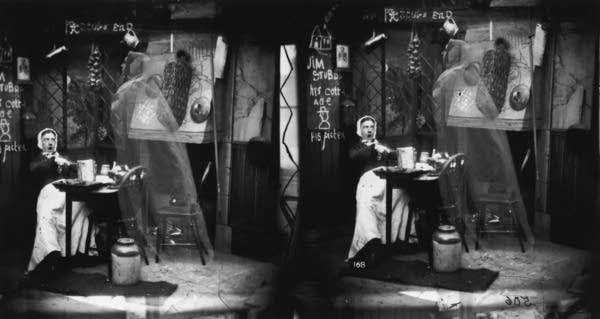Five haunting stories in time for Halloween

Ghost stories never get old: This trick photograph from 1865 captures a ghost coming home for dinner.
London Stereoscopic Company | Getty Images
Go Deeper.
Create an account or log in to save stories.
Like this?
Thanks for liking this story! We have added it to a list of your favorite stories.


